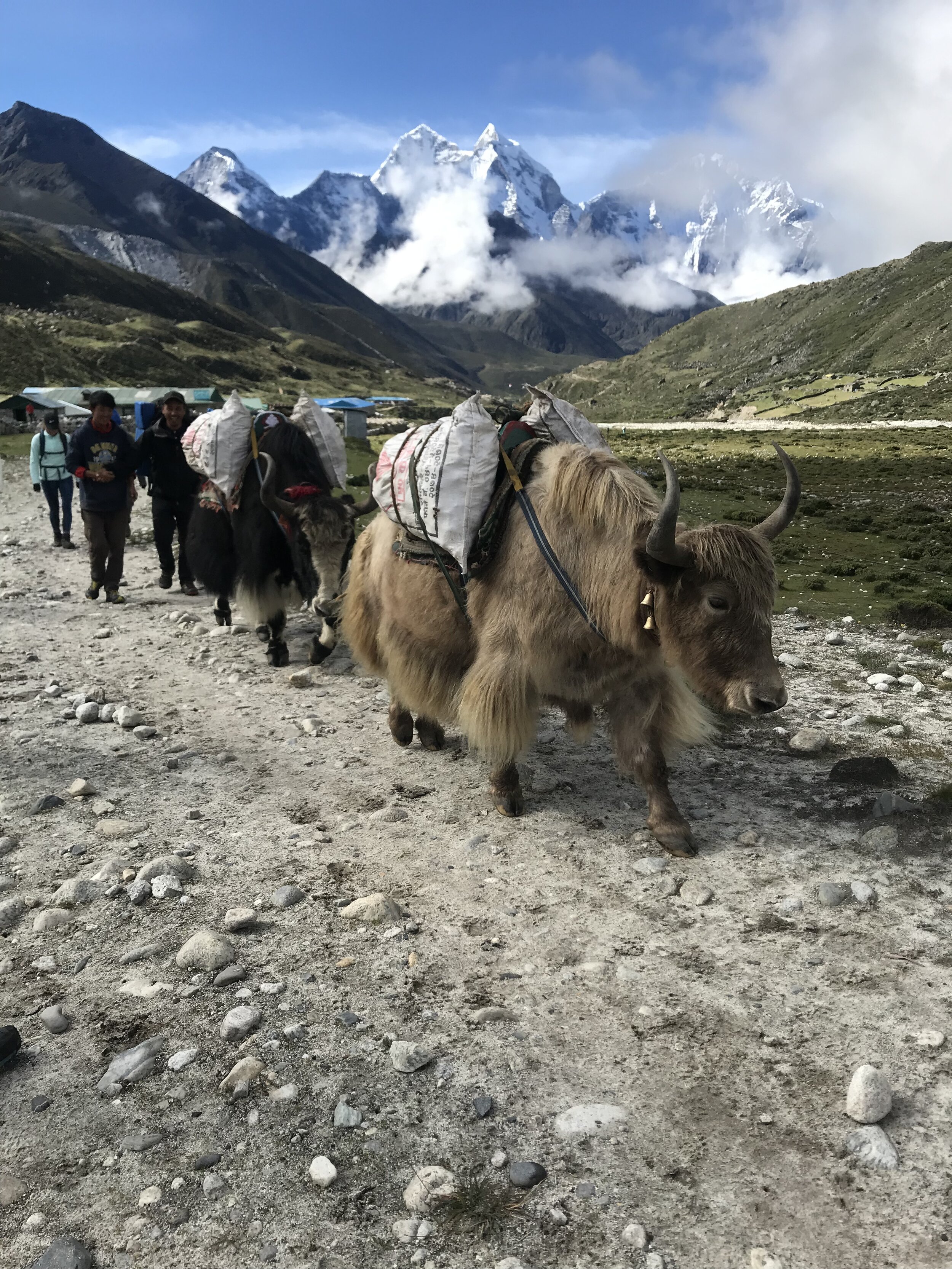Choosing your Challenges: 6 Major Factors
We’re approaching that all-important time of year again; committee elections, AGMs, handovers, not-so handover handovers, etc. etc. - which means the overarching question looms: which challenges will you be choosing for the next cohort of students?
Not only is the decision important for your budding new Freshers, who’ll no doubt be keen to get stuck into some fundraising, but also your existing trekkers, your committee, and you. This blog aims to address the aspects of selecting challenges that work for your campus, how you can avoid making mistakes, maximise the number of fundraisers on your treks, and importantly, ensuring your new committee are in-the-know.
We sat down with everyone; RAGs, independent leaders, Student Union reps, at our annual Strategy Day and came up with a list of six major factors to consider when choosing your challenges (we’ve thrown one or two of our own in too) - let’s get started:
1) IF IT AIN’T BROKE, DON’T FIX IT
If the challenge was popular, do it again. The likelihood is that, because of it’s popularity, word will spread and people who missed the mark will want to be involved next year, along with the fresh crop of Freshers. You want to generate that “wow” factor of being the society/student group that runs the e.g. Kilimanjaro Trek - this can’t happen if your best challenge changes every year.The worst thing that will happen is it will downturn slightly, but not capitulate. Consider all of your previous challenges as levels of risk based on how many students were recruited; e.g. highest number recruited = low risk to choose again. Lowest number = high risk, etc.
This is without a doubt the most important point when selecting incoming challenges, and something that incoming committees often trip up on due to poor handovers; if they don’t know a challenge has worked they’re less likely to choose it again.
“As long as it runs successfully, Kilimanjaro will always have a place on our campus. Whilst it’s important to adjust other elements to support your demographic, the fundamentals remain the same.” - Lydia (Plymouth RAG)
2) TRENDS: LOCAL AND NATIONAL
Partially relating to the above, you want to ensure you’re looking at the trends at your university over not only the past 12 months, but the past few years. By trends here I mean both registration numbers (local) and what’s generally more popular (national). If your registration numbers for a certain trek have been declining, for reasons unknown to you, consider changing it for something that is working well nationally. A suggestion here from us would be the Morocco Atlas Trek, which has seen multiple factors of growth over the past two years.
That said, it’s important you at least try to understand why a certain challenge hasn’t worked well before attributing it to trends. For example, if you have a poor Challenge Leader for a trip two years in a row, it’s more than likely that this is the main reason for it’s poor performance rather than trends. Try to understand why a challenge has performed badly before assessing how to address the issue.
3) STUDENT DEMOGRAPHICS
Know your audience. Every university is different, some way more than others - hence the common interests, values, and expendable time of students at university A could be vastly different to university B. The best example here is Bangor University vs. Cambridge University. Or the University of Cumbria vs. LSE. One university naturally draws in the outdoorsy type, and the other is much more rooted in academia and science. This is why two students from Bangor University got a record-breaking number of students in a Kilimanjaro team in a first year - 42. Not only because the leaders worked hard (and they did!), but because the demographic welcomed it with open arms.
The question, then, is, what to do in the case that your demographic is not suited to outdoors activities and fundraising? If you’re a well-established RAG, you’re already there. Keep doing what you’re doing; it’s the student community and social side of RAGs that often swing the students’ whose priority is purely academia. If not, try and work towards becoming more established as a social society and focus on one or two big challenges. Have more of an appeal than just overseas challenges (not that people should need more!) - being a multi-faceted society will help massively during promo.
4) COMPETITION
Something often overlooked by RAGs is how two events can often compete with one-another. This can be the case both with our challenges and challenges offered by our competitors. For example, Everest Base Camp and Kilimanjaro often tend to compete, and Machu Picchu tends to compete with other events ran external to us.
To alleviate this, we’d highly recommend running e.g. Machu Picchu instead of, not alongside, other competing events. And if you feel you’d like to run other competing events, simply swap Machu Picchu out for an Everest Base Camp or Kilimanjaro - simples!
5) YOUR CAPACITY AS A SOCIETY
A fairly straightforward one. If your society is very fresh off the boat, you’ve only got a handful of committee members, and/or you’ve only ran a handful of challenges in the past, probably best not to bust out a Kili, EBC, and Machu all in the same year. Be realistic with yourselves. Remember that having one big team is heaps more beneficial than having three or four small teams; team cohesion will be higher, therefore more people will fundraise; more people will hit their targets and travel; more money raised for charity and more likely to return for more!
If you’ve run a Three Peaks this year, maybe consider adding a Morocco to your portfolio. If this is too much of a risk, then maybe replacing Three Peaks with Morocco would be more viable.
6) UNIVERSITY FACILITIES
Does your Student’s Union support your recruitment and fundraising? Do you have an established sports department? If you have difficulties with these then you’ll need contingencies in place if you’re running bigger challenges. Unhelpful institutions can prove to be tough roadblocks throughout Freshers and later down the line. It’s important to know you have the support of your SU before stepping on anyones toes.
Sports-wise, if you have a large department, definitely consider choosing a marathon!
That’s just about all I can muster this afternoon - I hope it’s helped!
I’d love to hear your opinions so if you agree or disagree with anything I’ve mentioned above then please stay engaged and chuck a comment on here or on Facebook - I’d love to hear from you.
The all-important Challenge Selection Form will be released towards the end of April, start of May, at which point you’ll have one month (until 6th June) to complete the form to confirm your challenges for the next academic year.
Any questions in the meantime? Pop us a line at rag@chooseachallenge.com




